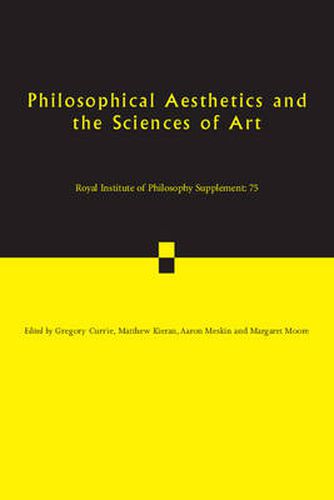Readings Newsletter
Become a Readings Member to make your shopping experience even easier.
Sign in or sign up for free!
You’re not far away from qualifying for FREE standard shipping within Australia
You’ve qualified for FREE standard shipping within Australia
The cart is loading…






Musical listening, looking at paintings and literary creation are activities that involve perceptual and cognitive activity and so are of interest to psychologists and other scientists of the mind. What sorts of interest should philosophers of the arts take in scientific approaches to such issues? Opinion currently ranges across a spectrum, with ‘take no notice’ at one end and ‘abandon traditional philosophical methods’ at the other. This collection of essays, originating in a Royal Institute of Philosophy conference at the Leeds Art Gallery in 2012, represents many of the most interesting positions along that spectrum. Contributions address issues concerning aesthetic testimony, the processing and appreciation of poetry, the aesthetics of disgust, imagination, genre, evolutionary constraints on art appreciation, creativity, musical cognition and the limitations or productiveness of empirical enquiry for philosophical aesthetics.
$9.00 standard shipping within Australia
FREE standard shipping within Australia for orders over $100.00
Express & International shipping calculated at checkout
Musical listening, looking at paintings and literary creation are activities that involve perceptual and cognitive activity and so are of interest to psychologists and other scientists of the mind. What sorts of interest should philosophers of the arts take in scientific approaches to such issues? Opinion currently ranges across a spectrum, with ‘take no notice’ at one end and ‘abandon traditional philosophical methods’ at the other. This collection of essays, originating in a Royal Institute of Philosophy conference at the Leeds Art Gallery in 2012, represents many of the most interesting positions along that spectrum. Contributions address issues concerning aesthetic testimony, the processing and appreciation of poetry, the aesthetics of disgust, imagination, genre, evolutionary constraints on art appreciation, creativity, musical cognition and the limitations or productiveness of empirical enquiry for philosophical aesthetics.